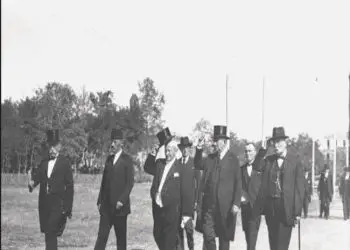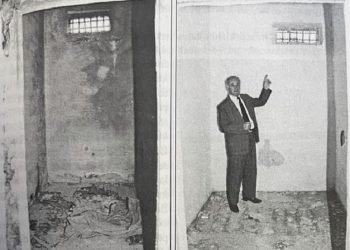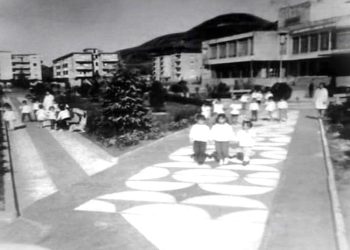Fatbardha Mulleti (Saraçi)
The fifth part
Memorie.al publishes some parts from the book ‘Calvary of women in communist prisons’, by Fatbardha Mulleti Saraçi, (granddaughter of the famous former mayor of Tirana, Qazim Mulleti), whose family from 1944 until in 1991, he was persecuted by the communist regime of Enver Hoxha, where Fatbardha’s father, Haki Mulleti, a former senior state administration official since the 1920s, was imprisoned and interned by his family, until died in the hospital of Tirana, poisoned by the State Security. In her book ‘The Calvary of Women in Communist Prisons’, which is the fruit of several years of work, the author has masterfully described the unknown stories of some of the Albanian women and girls who suffered in prisons and internments in the dictatorial regime of Enver Hoxha, started by her mother, Pertefe Mulleti, and in turn: Marie Deda, Hajrie Kazazi, Kushe Seknej, Mrike Pali, Zyliha Rusi, Roza Jakova, Fatime Dilaveri, Hatixhe Pipa, Marije Gjoka, Angjelina Topalli, Hatixhe Kopliku, Nafije Kop Bushati, Budije Bushati, Adile Kazazi, Antonela Dostanishta, Nafije Stërmasi, Luçije Saraçi, Adile Meta, Qeuthere Meta, Feride Damnori, Vitore Ashta, Fetije Vuçiterni, Zehnije Gjylbegu, Xhyhere Kazazi, Luçije Malaj, Leadije Kazazi, Sadije Kazazi Hava Repishti, Luçije Kurti, Rukije Bushati, Shaqe Logoreci, Qamile Myftija, Marie Ndokëllia, Rozë Çefa, Çile Staku, Shaqe Marku, Lajde Arapi, Lutfije Barbullushi, Syme Muka, Zenepe Kraja, Fahrije Kazazi, Naxhije Plari, , Lizë Vukeli, Bade Kjaraj, Hava Baçi, Xhehadire Boriçi, Vitore Kalaj, Katerina Benusi, Sofije Baja, Lenë Pjetri, Dava Markagjoni, Mrika Markagjoni, Marta Gjonmarkaj, Bardha Gjon Markagjoni, Kristina Gjomarkaj, Çelestina Pervizarki, Kune Miraka, Sultana Dine, Vera Dine, Agime Dine, Hamide Çela, Vera Dine, Kadrije Cami, Sanije Sulaj, Meliha Sulaj, Vashe Kola, Prena Llesh Gjeçi, Gjystina Seku, Ilda Melgusha, Agime Pipa (Aranitasi), Terezina Pali, Liza Pali, Adile Boletini, Nasibe Kazazi, Ana Daja, Dila Zef Ndoja, Zyraka Mano, Shanisha Dosti, Zojë Gjeloshi, Drane Stakja, Elena Luli, Sabiha Kasimati, Marije Deda, Marije Shllaku, Biçe Pistulli, Sadije Kazazi, Gjyzepina Çoba, Marta Doda , Frida Satedini, Vitore Kuka, Gjela Llesh Biba, Bardha Cub Marku, Liza Llesh Mali, Bardha Mark Bushkola, Marije Tuci, Olimbi Baruti, Angje Kovaçi, Bedrije Ashikja, Musine Kokalari, Motër Gjeorgjina, Liljana Radovani, Laura Keqi, M Mrike Zadeja, Angjelina Shantoja, Naime Koçi, Sheriar Sefa, Vitore Shllaku, Liza Gjon Voci, Nina Shiroka, Laje Mehmeti (RRema), Feride Beshiri (Quku), Hasije Ulqinaku (Quku), Sofije Kali, Çile Gjush Larja, Nurfezo Koprencka, Sanije Gjylbegu, Emilja Shest Bregu, Vida Radovani, Nedrete Pipa, Motrat e Osman Kazazi, Safete Jusif Sokoli, Çiljeta Simoni, Lutfije Buashati, Sadije Bushati, Olga Schëeizer Libohova, Evelina e Ndoc Naraçi, Geraldina Apony-Zogu, Hilda Zyma. Marie Rafael, Zade Muka, Rukije Bushati, Hajrie Vrioni, Emine Gjyrezi, Xhemile Beqir Komi, Hedije Dume Repishti, Syme Muka, Fetije Vuçiterni, Sebije Puka, Marjeta Serreqi, Dhurata Sokoli, Klara Miraka (Merlika), Asi , Liri Cenaj, Rudina Dema, Adelajde Miraka, Drane Jakja, Syriha Hasi, Aishe Gogaj, Luçija Kaçaj, Gjyljana Malaj (Pervizi), Nadide Kasaruho, Nadire Kërçiku (Peshkëpia), Shpresa Ballolli (Merdani), Makbule Frashëri, Misly Çrash Dervishi (Leka), Natali Arkandi Rozengolc (Pengili), Vigelmina Vitalij Kovaleshko (Veshi), Rukije Rama, Tefta Tasi, Liri Lubonja, Kozara Kati, Shpresa Ngjela, Vera Bekteshi, etc.
Continued from the previous issue
Nafije Stërmasi
(1920 – 1983)
Like many other women who grew up and were educated in the spirit of patriotism, Nafije Stërmasi also challenged communism with her life.
Born in Shkodra, she married in Tirana to a family that had contributed to Albania’s declaration of independence. Relying on this plot, her husband had graduated from the Military Academy and served in the Albanian Army until 1939. After the fascist occupation of the country, their house became an important nationalist base (from there ‘Balli Kombëtar’ was connected to all cities). He himself led the youth of this organization of the capital.
During the War, the Communists carried out three assassinations. It is understood that after her was wanted by candlelight. “I will not go out, for I have done nothing,” he said when suggested exile. It was this 24-year-old woman who hid the father of three young children. He endured the tortures and psychological pressures inflicted on him by the dictatorship. The little child was 6 months old. She wanted to go home to feed her. “You have enemy milk,” said the investigator, and he would not allow it. Can this be conceived? After two months, he and his three children were interned in Berat, where survival was difficult, life was short. During this time, the husband is caught and shot. Desolate woman! She was able to get a few days off and with the help of a villager, she found out where her husband’s grave was. He dug. He found the corpse upside down. He turned it over, cut off a lock of hair (still preserved by children as the most precious memory) and reburied it. On a stone he scratched his name, which he disguised. Then he swore: “I will keep the promise I gave you, as befits your family and my family. I will raise the children! ”
After returning from exile, everything was confiscated. As a strong and courageous woman, she worked where she found herself: mortar worker in the Construction Company, digging holes, planting trees, digging new land, even though it was a job for men. Even with the aim of making a half a day rate: he had to provide food rations; he had three children and a mother-in-law. Man above men, until he retired. He was 55 at the time; was ‘hanger’ with the work ‘tooth for tooth’, for 30 years. No little.
The event that remained in her and her family’s memory was one night in March 1963. The villager, who in 1946 had told her husband’s burial place, told him that the tractor would work there. That night, with the boys, whom he showed to the road, he went to the place, discovered the tomb, and collected the bones of her husband. Then, after coming home, they buried them in the yard. “Do not argue with anyone,” he instructed the boys, “because you pay with your head.” Her last message was: “When you die, bury us together.”
The years passed. In 1983 she died. The boys fulfilled his will. In the coffin, next to her body, secretly placed the ashes of her husband. In their grave they carved: Nafije and Reshat STËRMASI, challenged the revolutionary vigilance of the dictatorship.
Luçie Saraçi
(1908-1995)
It is difficult to describe the various sufferings and persecutions that Luçije Saraçi and her two children suffered: at first two brothers-in-law were shot, two relatives were imprisoned. It did not take long for her husband, Ludovik, to be imprisoned, but for lack of evidence he was released, but we were constantly monitored. In these circumstances, he is illegal in the Kaçinar Mountains (Mirditë). Then she tries the arrest, she left at home, at the mercy of fate, her two sons (one 9 years old and the other only 1). After a year he was released, but before the week was over (December 27, 1946), a truck, which had gathered others, took this unfortunate family with him and sent him into exile. In the beginning in Berat. It was the beginning again. She is arrested there: through torture she was asked to deny her husband, who continued the anti-communist resistance in the mountains of Mirdita, but she is not broken. Internment continues in Kuçova: hard work without pay, bad food with the smell of vojgur. The water tasted the same, although it had drinking water, but it was not for the internees.
The third phase of the internment is Shijaku. Still, among others, do the hard work for men, that of paving the Shijak-Durrës road with gravel. Even here for free. Then in Valias of Tirana, this time in the agricultural sector, with the children on their feet, who began to grow taller in those conditions, both with empty stomachs and under the savage gaze of the guards and under the pity of the other persecuted. “What makes carpets?” The poet asked half a century ago. “Mother’s love caresses her,” was his answer again. He was right. That’s how they grew up.
Thus until 1948, when her husband was killed in an attempt by the State Security. It seemed that the troubles were over. But no. Although she was released, her house in Shkodra, which she had left furnished, was no longer hers: everything was robbed. The persecution continued at every turn. To feed the children he tried several jobs (sometimes in tailoring, sometimes in the Hospital, and sometimes in the Pharmaceutical Company). He was constantly at the top of the list to be fired. He finally settled in the Forest Nursery Company, hard work done in nature, in atmospheric conditions of all four seasons of the year, where he retired.
Nothing was for him all sorts of weary works he tried. She suffered more when she saw how quite young children faced work, rather than attending school. She knew this, so she cultivated the desire to study early on, so self-taught: why were so few people grown up studying on their own? And the children did not disappoint: they became masters at their job. The old intellectual tradition of family and family circle was not broken.
Luçije Saraçi lived long. Always with dignity. He finally tried the democracy he had fought for. The day she was commemorating the 49th anniversary of her first internment (December 27, 1949), she closed her eyes forever, leaving behind the echo of the work of a heroic woman.
Adile and Qeuthere Meta
(1897-1954), (1911-1995)
- The tomb guard was impressed by a man walking among the tombs. He approaches and asks:
– What are you looking for at night in this place?
“I’m trying to find my mother’s grave,” was the answer.
The surprised guard asks again:
– Boy man, did you not know where my mother’s grave is?
Only when the visitor clarified that he was coming from Burrell Prison, where he had spent 15 years, and that he had just learned of his mother’s death, only then did the guard remember that mother whom Communism had left without its three sons.
This had been the tragic end of Mother Adiles: she had died of her sons, her fellow prisoners, so as not to upset them, they had not been told.
Three sons were born, raised and educated by this mother. All three became established nationalists: both anti-fascists and anti-communists; only Albanians in the service of the national cause. For this, they also fell into the hands of the Security, who after torturing them and giving them the most severe punishments, deported them to the extermination camps.
Nana was left alone. They also took his house and property. They “owned” a piece of cot all the humidity, two meters long and one and a half meters wide, a blanket, a stool, a quilt and only a cooking utensil. That’s it. Nothing more. How could one live? Me see? To think for yourself, or for the boys? Weeping for her or theirs? But why did people become rarer? Endless questions. Just questions, that were unraveling the brain and exhausted. Desolate her!
She did not find out that a boy had died of starvation and was buried by the canal where he worked. He also did not know that the other two were being held in terrible prisons, you waited for death every day, without knowing it yourself, that their mother was closing her eyes forever without having any of the heart pots nearby …! Died with the mind to them, by wished from the depths of the soul long life.
Meanwhile the tragedy continued to be played on her sister-in-law, Qeutherja. The communist regime also imprisoned her two sons. He then expropriated her, leaving her to work in agriculture as a livelihood. She accepted the challenge. He worked with the idea of securing as much income as possible in order to keep the boys in prison. With the ridiculous salary he had to support the other children as well. He worked until he retired. He performed all his native duties as best he could. In this way, she challenged the dictatorship. She was lucky enough to see her sons out of jail. He was lucky that Adilja did not have it. She rejoiced in the advent of democracy and thus died relieved.
Feride Domnori
(1903 – 1987)
For Feride Domnori the tears started early. One after another three sons died. Somehow the wound closed when he saw that the fourth son was growing up healthy. (“Lord, save us the light of the eye”). The boy grew up; he was polite and respected by all. Like his father, he too formed a nationalist belief from an early age. But communism was established in Albania. In Has of Krumë, where he was a teacher, he lived with the concerns of the people.
He escapes, but the Security catches him. He was sentenced to 20 years in prison. Their “only light of eyes” joined thousands of others in the Albanian gulags. In heavy, difficult and life-threatening work: in the Thumana Swamp, in the inner lining of chimneys tens of meters high of factories, in Laç and Elbasan, in the mining galleries (Rubik), under construction, etc.
Poor mother and unfortunate sister everywhere after him. As in one prison, in another. Always charged: strays filled with food, with love, with pain. They went in the hope that they would find him in good health. Each in his own thoughts. Too focused. Thoughts … thoughts … thoughts … all kinds of questions … all kinds of desires. (“Do you think it will be better than next time?” “Will you benefit from an amnesty?” “Who’s wrong with this guy who suffers like this?” let life go to prisons ”?). Every time they would rock the top of the trucks, besides these thoughts. Until they reached the iron gates, which opened with that terrifying noise that would not be forgotten for a long time when they returned.
Once they did not find it. Heavy work, sensitive nature and endless psychological pressures made the sick seriously. At first he was beaten in the infirmary. Then the pressure of the other prisoners had forced the prison authorities to admit him to the hospital in Tirana. With one breath they found him there. How was my mother desolate … how weak she was…! They barely recognized him. He sticks the buttons of his shirt, puts his head in his armpit, smells it, kisses it, and squeezes it with those forces that have exhausted her as well.
The sister shakes him, caresses his hands, and caresses him like a child. There were no tears: they had frozen (“Are you saying we’re coming out of here alive?”) Was the hammer question, which was not shared all the time? Until he was separated from these black thoughts except by the intervention of the police. (How did they get here?) With broken hearts, they leave slowly. Tue turned his head from time to time. Just until the hospital building disappeared. Still silent. Both with the same black opinion, but who did not tell each other.
And the news that awaited them found them frozen, stunned. All they had to do was comfort each other. As if they had no strength for anything. Then they burst into tears. Where to cry? The grave was unknown. Then only one cry was heard. Feride’s mother had also died. After many attempts, sister Nexhi found the grave of her brother. Now he has nowhere to go. And every time he returns from there, through sighs he means: “Let no one prove what we have tried.”
Vitore Ashta by Marije Kurti
(1916 – 1994) (1915 – 1998)
Two sisters. “Two cherries tie in a rfana”, except in the leitmotif of the great poet, who engraved this verse. There are two sisters, who almost tried the communist ordeal. Both together, all the time, in the struggle with life, to work to alleviate the suffering of brother, husband, son, grandson, who was wasted in prisons. They had a brother, Zef Cin Ashten, who, although anti-fascist, even though he fought with them, was convicted three times by the communists, until he died in prison in 1979.
Although Albania needed teachers a lot, Vitorja, a graduate in this field, was fired because her brother was considered an enemy. To make a living, he worked in the hardest jobs of the time: in the production of thorns, in the presence of moisture and in the processing of tobacco, in the presence of poisons. Where else to go? Necessarily he could not find another job, not even Marija: on the mountain of Kakarriq to collect sage, and in the Hills of Tepe for digging holes!
What did it matter that she had small children? What did it matter that whenever there were layoffs in the workforce, it was at the top of the list? O irony of fate…!
Both of these, unjustly convicted, followed their brother everywhere, to the communist hell. In her heart: in Maliq and Orman-Pojan in Korça, in Beden in Kavaja, in Burrel prison, and most recently in Spaç in Mirdita. In places where man entered, it was difficult to get out. Even if it came out, it would not be who it had been. And he did not come out…!
Once a month, as much as the prison regulations allowed, as much as the law allowed, both, loaded with strikes, full of troubles, more on foot than in cars, because drivers, for fear, did not take them in vehicles that they led, they headed towards these circles of hell, to see their loved ones, to ease their sufferings a little. That was not enough. Mary’s husband, like the brother-in-law of an “enemy”, is killed without trial. “Alibia” was found: it had fallen and had found death. But later the bones were found; the skull had holes that housed only bullets.
That was not enough either. Her eldest son is serving 19 years in prison (of which 8 are added while serving his sentence). “A boy with a criminal father and an enemy uncle cannot be good,” the prosecutor told the court. Where a year ago (1979) my uncle had died, in Spaç, therefore, my nephew would enter.
Mother Mary would go again. Now for the son. Often with his little 10-year-old daughter, Linda, who wanted to see his brother?
Thus, until 1990, when only the democratic processes that had just begun, drove him out of that country.
Fetije Vuçiterni
(1910 – 1999)
A moment in her life is perhaps more tragic than the many women and girls described in this book. She was born in Shkodra at the beginning of our century and married Sali Vuciterni, who during the reign of King Zog I, participated in the cabinet created by him. Two families with Zogist nationalist convictions were thus linked.
Of course, as the times came in the ‘40s, the peace of this family would be broken; Sali Vuciterni was sentenced by the communists to life imprisonment. (For the Albanian communists, Kosovo did not belong to Albania.) Other consequences came in turn. Cliché consequences: confiscation of property, hard work, lack of more basic rights, contempt, public discredit. All sorts of consequences. Who manages to list them all?
He came from Tirana and settled in Shkodra. With those troubles that are known. Month by month, we charge towards Burrell. To see her husband. For him he saw his brother, Sheuqet, in whose house he lived. I had to sleep outside often. Even in a case when a family opened the door, the next day, the owner of the house was called to the City Department of Internal Affairs, where they told him…! It is already known. “The most difficult day of my life,” she says, “is when in 1949; I received a letter from my only son, Nazim, informing us that he had graduated with honors from the University of Rome.”
With one breath I went to Burrel and told the man. He was overjoyed and went inside to tell his friends and treat them to candy. I waited outside, and it was not long before I was informed that my husband had died. It was the happiest news of his life. His heart was so weak that he could not cope with the natural emotions. I was dragged to die behind the prison wall and thrown.
It is the only case in the history of Albanian prisons where a corpse was handed over to a family. I was left alone with one dead ahead. Dije Boric, who also had her husband in prison, came and helped me. We wrapped it up, tied it up, and painstakingly placed it in the body of a car loaded with lime. My heart sank when I thought he deserved a death and an honorable burial. But my suffering continued even later. Until 1965 I cared for my brother who remained in prison. I taught the way to there to his children, who always went willingly, without waiting and with love to see their father. ”
Today she is 86 years old. Her phenomenal memory is an inexhaustible source for reflecting the communist hell of the last five decades.
She lives with a single hope: to see her only son, whom she has not seen for 52 years. Is he alive? She does not know, because from the letter of 1949, which caused the death of her husband, she received no more news. Wait…!
Maybe this hope still keeps him alive …! Memorie.al
The next issue follows




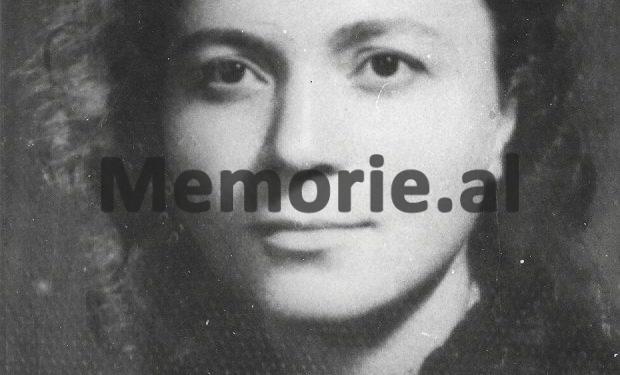
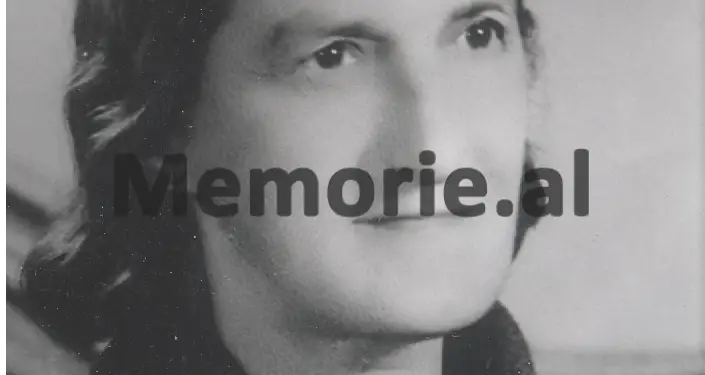
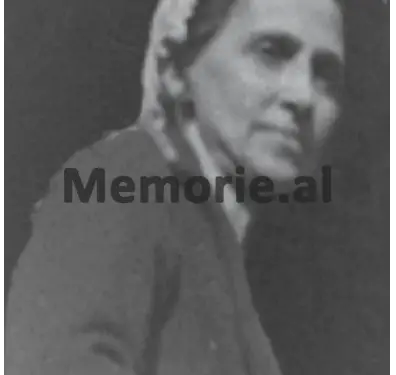
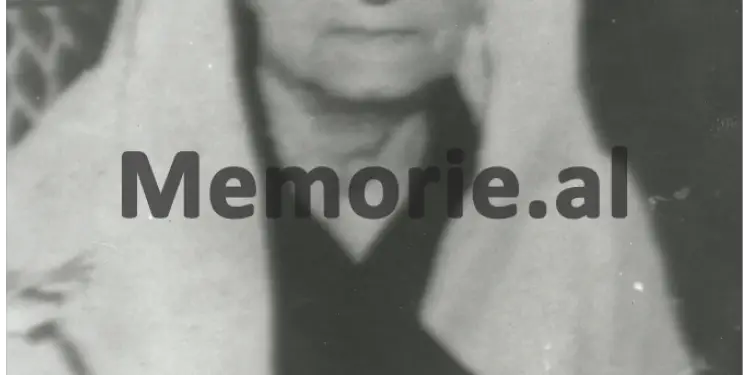
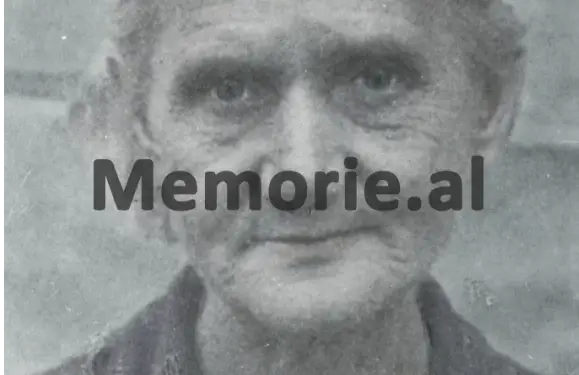
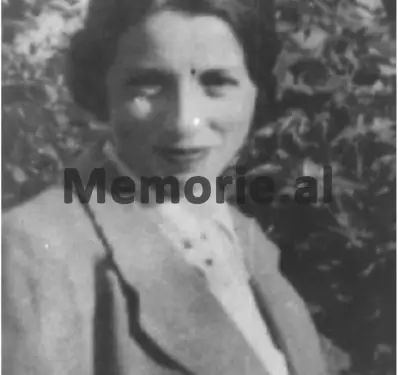
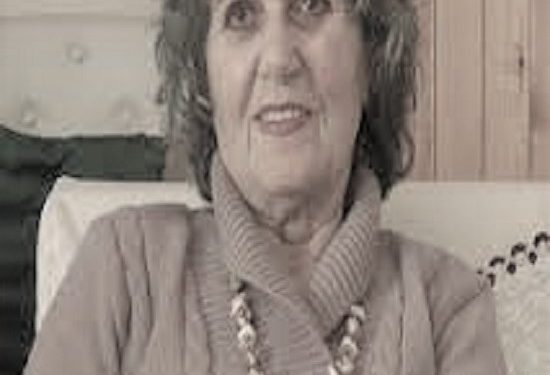
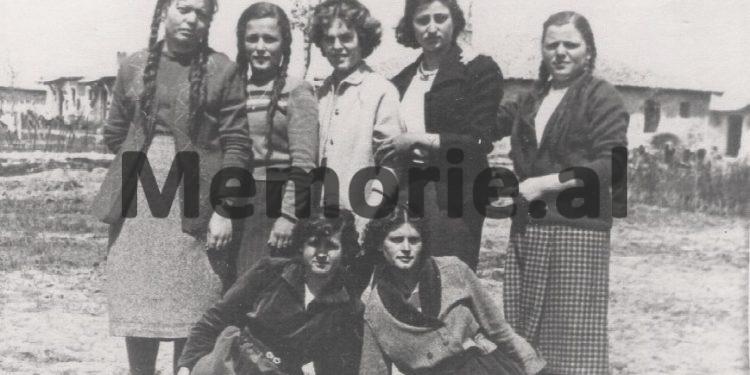
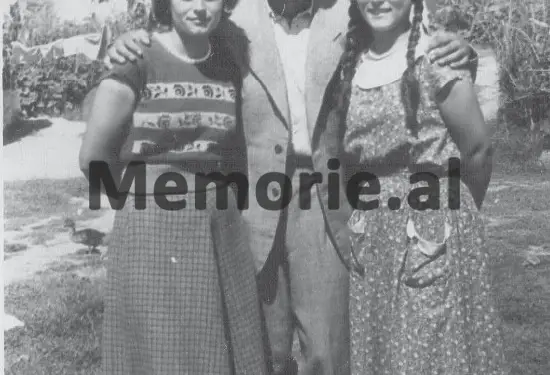
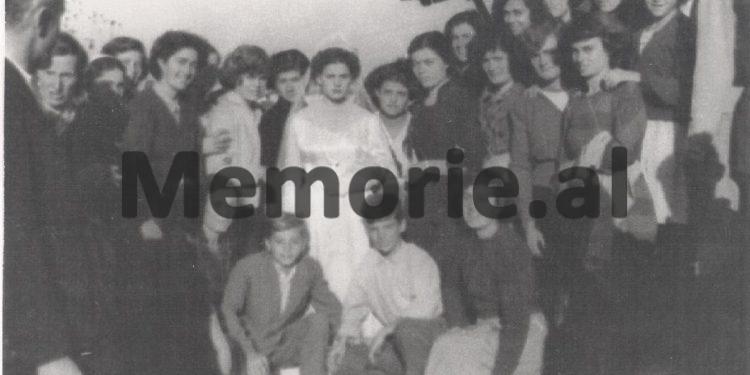

![“After the ’90s, when I was Chief of Personnel at the Berat Police Station, my colleague I.S. told me how they had once eavesdropped on me at the Malinati spring, where I had said about Enver [Hoxha]…”/ The testimony of the former political prisoner.](https://memorie.al/wp-content/uploads/2024/09/admin-ajax-4-350x250.jpg)
